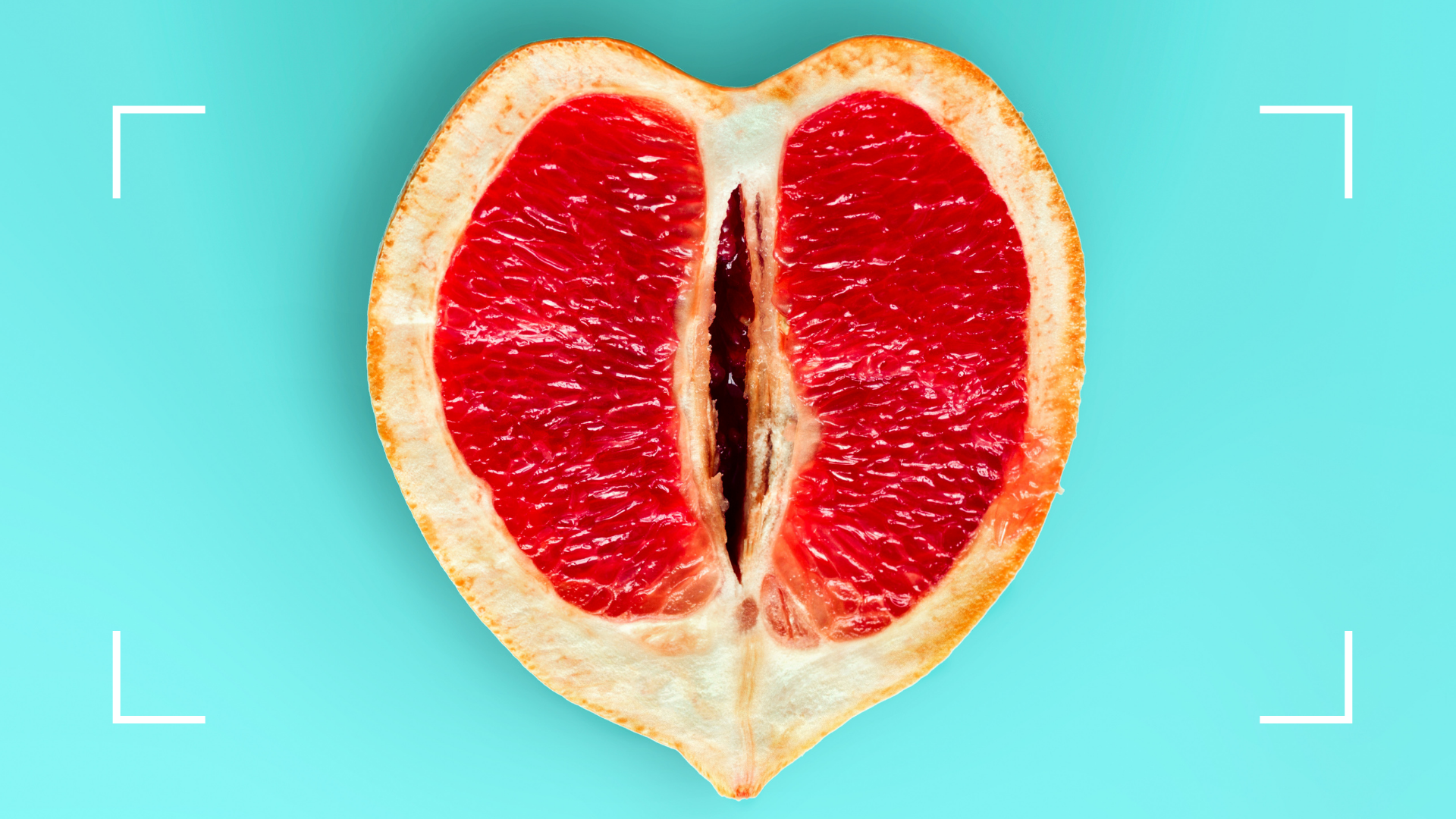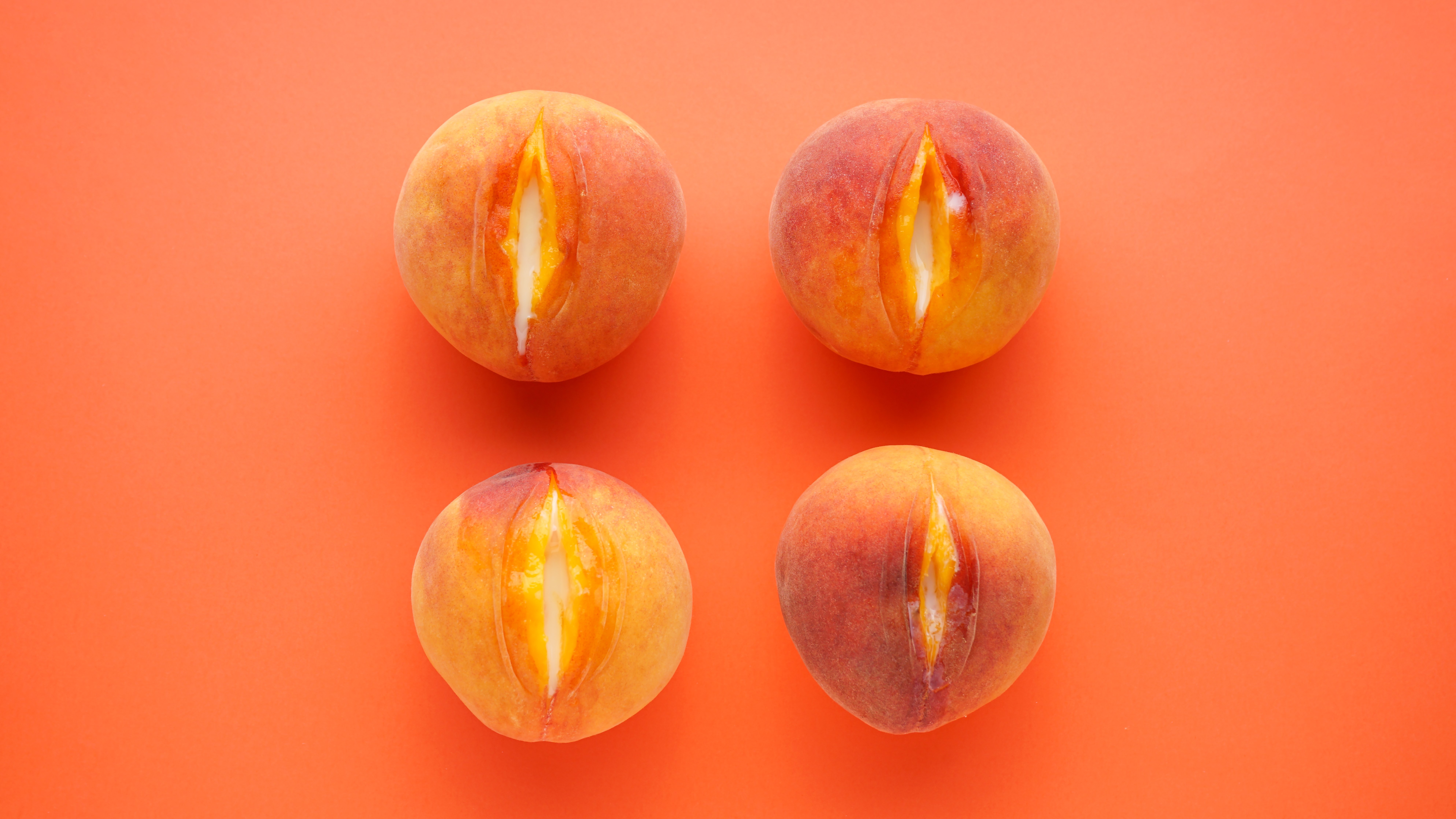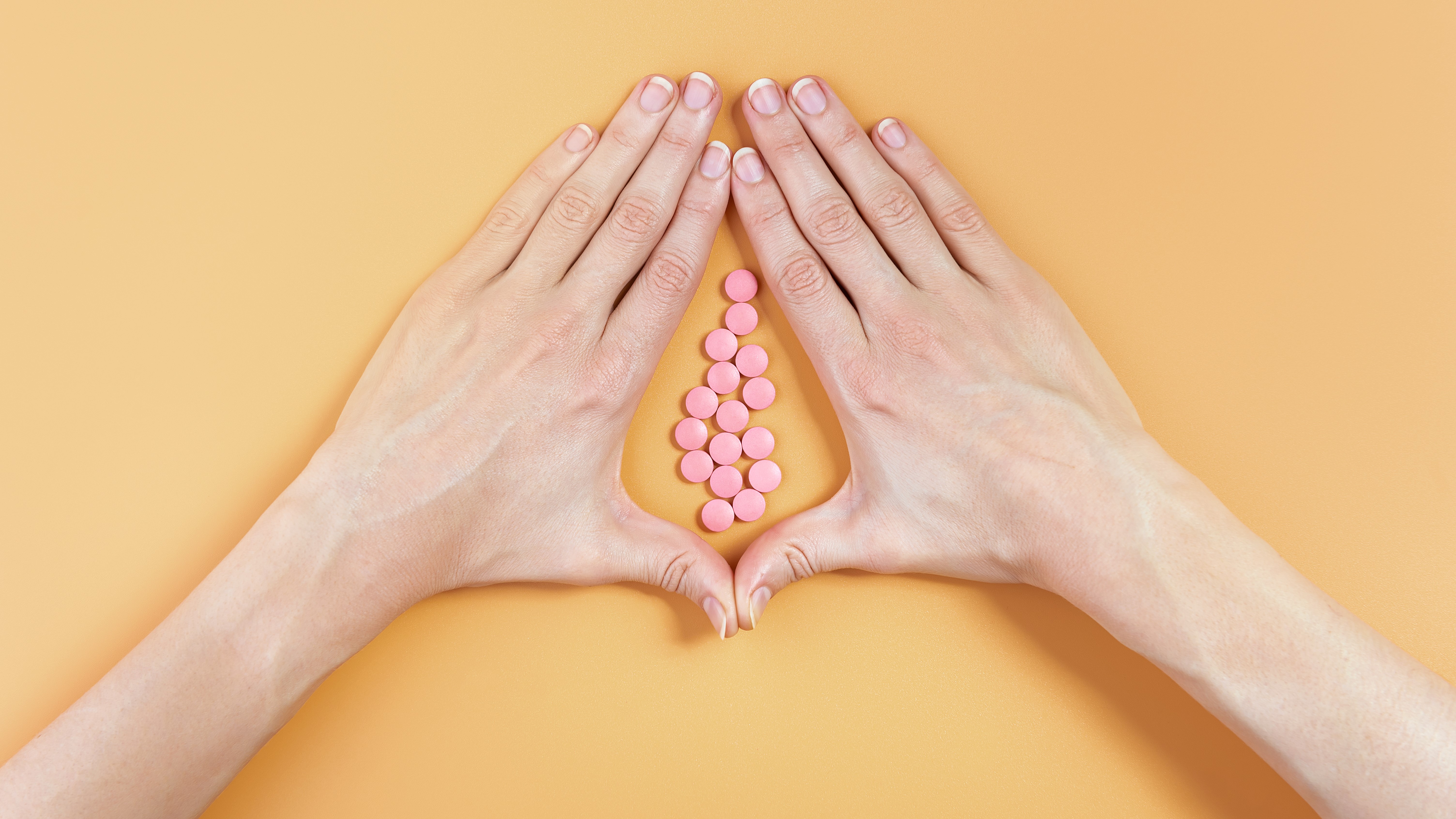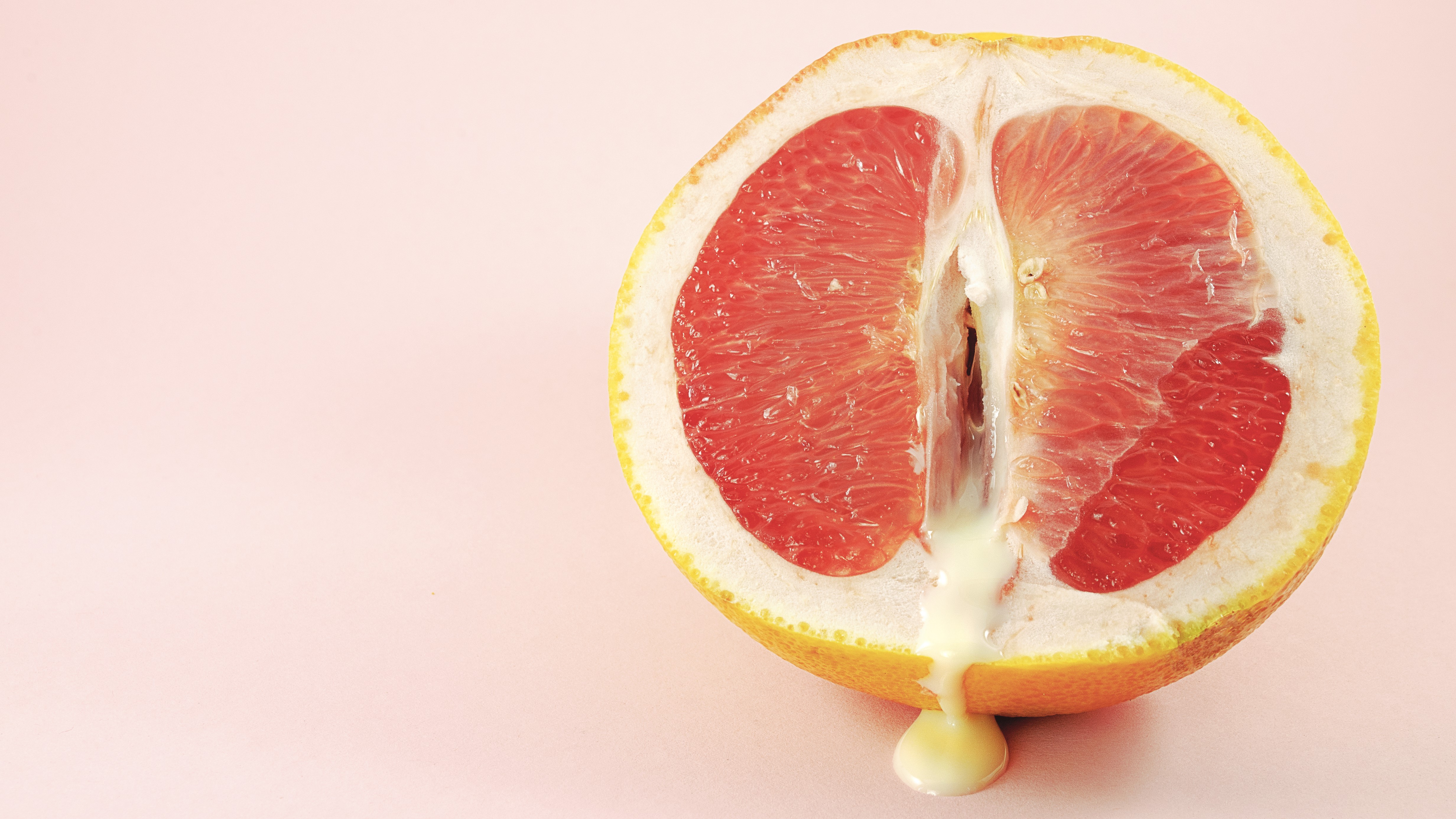Four expert-approved vaginal dryness treatments for a happy and healthy vagina
Experts share their top vaginal dryness treatments


Vaginal dryness is a common health concern, but the good news is there are simple vaginal dryness treatments that can make a world of difference. We spoke to the experts to bring you their top recommendations for a happy and healthy vagina.
Vaginal dryness affects women of all ages and occurs for a number of reasons, many beyond our control. The vagina is self-lubricating, but sometimes it struggles to produce enough fluid to maintain a healthy level of moisture. As hormones fluctuate they affect our vaginal microbiome and the vagina's natural lubrication.
Vaginal dryness can cause a prickly sensation, itching, burning or pain during sex. It can lead to infections like thrush or bacterial vaginosis, or trigger conditions like vaginismus. It can also cause your discharge to change in colour, smell or thickness. Knowing the symptoms and the treatments available is key to tackling vaginal dryness.
Just like doing kegel exercises to keep your pelvic floor strong and healthy, there are steps you can take to treat vaginal dryness. Here, the experts share the most common causes of vaginal dryness and how to treat it.
Common causes of vaginal dryness
Vaginal dryness is a common concern for many women. Research conducted by Vagisan found vaginal dryness impacted the sex lives of six in 10 women and over half (58%) have less sex or avoid it altogether as a result. These women were aged between 50 and 70, which shows us just how common dryness can be during menopause and how sex and menopause are connected.
The most common causes of vaginal dryness include:
- Peri-menopause and menopause—reduced estrogen during this time cause the vagina walls to become thinner and less elastic, and the glands close to the cervix produce less fluid for lubrication.
- Hormonal imbalance—this can happen at any age and be caused by increased cortisol levels following stress, as well as gut issues, thyroid issues, lack of sleep. It can also happen during different stages in the menstrual cycle.
- Low libido—stress, anxiety and certain types of medication such as anti-depressants can cause low libido and affect the Bartholin's glands (those that produce fluid when you're turned on during sex). A lack of foreplay or communication with your partner can also affect your sex drive and cause vaginal dryness.
- Personal hygiene—washing with scented soaps can upset the vagina's natural flora and cause dryness, itching, and pain. Certain medications used to treat things like fibroids and endometriosis can also cause vaginal dryness.

Four vaginal dryness treatments
"The problem with vaginal dryness treatments is there are so many options for women over-the-counter, outside of the traditional lubricants, but most of these only lubricate the vagina during sex," explains Consultant Gynaecologist, Ms Tania Adib.
Sign up for the woman&home newsletter
Sign up to our free daily email for the latest royal and entertainment news, interesting opinion, expert advice on styling and beauty trends, and no-nonsense guides to the health and wellness questions you want answered.
This means these over-the-counter treatments only provide short-term relief. The key to treating vaginal dryness is finding the cause and a more effective, long-term solution. Speak with your doctor to determine if your vaginal dryness is down to a hormonal imbalance, a lifestyle factor, or another health issue. Every vagina is different, so it's important to investigate this further if it's a long-term problem.
The most common vaginal dryness treatments include:
- Estrogen creams and hormone replacement therapy
- Diet
- Creams
- Lubricants
1. Estrogen creams and hormone replacement therapy
Hormone replacement therapy (HRT) and estrogen creams replace the estrogen your body no longer makes during menopause. It's often used to treat vaginal dryness and discomfort caused by menopause, as well as other menopausal symptoms such as hot flashes and night sweats.
Estrogen can be prescribed by a clinician and comes in the form of pessaries (which are inserted into the vagina), patches (which are usually placed on the lower stomach area), tablets (taken orally) or a gel or cream (applied topically).
"In severe cases, they can be used at the same time. Pessaries are easy to insert and not messy and can be used with standard HRT, patches, gels and tablets depending on your doctor's advice," explains Dr Joanne Hobson of Nurture Fertility.
"HRT can be used safely for life, even in women with breast cancer that is estrogen receptor-positive, as well as women who have had strokes or clots in the lung. Just speak to your doctor first for advice," she adds.
If you think your vaginal dryness is down to menopause, this could be the right treatment for you. The three most common hormone treatments include:
- A low-dose vaginal estrogen cream, tablet or ring to reinvigorate vaginal tissue. Even if you’re using systematic HRT pills or patches, you may be prescribed a low-dose vaginal estrogen treatment by your doctor.
- Dehydroepiandrosterone (DHEA) approved by the FDA, this treatment comes in the form of a nightly vaginal suppository and is especially effective for dryness of the vulva, as well as dryness of the vagina.
- Ospemifene (Osphena) is a selective estrogen receptor modulator (SERM) medication that is taken orally through the mouth. It's used to treat vaginal dryness as well as pain during sex associated with menopause and vaginal atrophy.

2. Diet
There are plenty of foods for a healthy vagina you can incorporate into your diet to help alleviate vaginal dryness.
Eating a diet rich in phytoestrogens (aka plant-based estrogens) such as organic soy, flaxseeds, lentils and chickpeas is a great way to stabilize your hormones and encourage more moisture in the body.
You can also avoid sugar and refined carbohydrates to keep your blood sugar stable and your insulin in check. “Choose slow-releasing carbs such as fruit and veggies, whole grains, quinoa, buckwheat, brown rice, and make sure you’re including protein and healthy fats at each meal to keep you full,” says hormone nutritionist and author Nicki Williams. “You should also support your thyroid hormones with plenty of nutrient-dense foods and immunity supplements such as a good multivitamin, Vitamin D3 and Magnesium.” Omega 3, which you'll find in fish, nuts and seeds and plant oil, will also help reduce inflammation in the body and promote the development of healthy cells.
3. Creams
Vagisan’s research found that 39% of women are using all sorts of non-specialist products such as Vaseline, coconut oil and Sudocrem in their vagina. This is not recommended and can cause infections. For an effective treatment you should use a product specifically designed for the problem, says Dr Harper, a GP specializing in women’s health.
You can treat dryness with creams, oils and lubes created especially for your vulva and vagina. This can help to keep the skin healthy and moisturized while also provide topical relief. Vitamin E oil and almond oil-based products with a body-safe guarantee are good options. As are pH-balanced creams formulated specifically for vaginal dryness. Ask your OBGYN about the best options for you.
Remember, what you use to clean your vagina matters, too. If you use perfumed products, it could result in a sore vagina and dryness. Opt for body-safe washes and avoid perfumed soaps and wipes. Change your underwear regularly and choose natural fibers and period products that won’t upset your natural moisture levels (see our guide to the best period underwear for recommendations of soft and comfy period care).

4. Lubricants
You've heard of CBD for sleep, but have you ever considered CBD for your vagina too? Yep, it's a thing. CBD-infused oils and lubes created by sexual wellness companies are popular lubricants for vaginal dryness (thanks to their anti-inflammatory properties), and ultimate pleasure during sex.
Using a body-safe oil can help boost confidence and improve sensation during sex, while also moisturizing down below. Just remember if you’re using a specially formulated oil product during penetrative sex with latex condoms, it will compromise protection. Always use a water-based lubricant with condoms, and save the CBD-infused oils and lubes for solo female masturbation or mutual masturbation sessions.
Not all lubes are created equal so when choosing one for vaginal dryness, be conscious of your increased sensitivity. The best lubes for sex toys, menopause and sensitive skin are paraben-free, non-scented and water-based.
If you have vaginal dryness and are struggling with the effects, speak to your doctor for medical advice and to find the best treatment for you.
w&h thanks Ms Tania Adib, Consultant Gynaecologist, Dr Joanne Hobson of Nurture Fertility, hormone nutritionist and author Nicki Williams and Dr Harper a GP specializing in women’s health for their time and expertise.
Emilie Lavinia is a writer, entrepreneur and women’s wellbeing advocate. She is passionate about femtech, closing the gender health gap and campaigning for education and transparency across mental, physical and sexual health. Emilie presents All Being Well – a series that investigates the concept of wellness, good health according to experts and what it means to ‘be well’. She has a decade of experience as a journalist, editor and brand strategist and is the founder of four separate organisations that champion women’s health, marginalised communities and LGBTQ+ people.
-
 Cat Deeley's simple approach to self-care makes it so easy to feel good every single day
Cat Deeley's simple approach to self-care makes it so easy to feel good every single dayNo matter how little free time you might have
By Charlie Elizabeth Culverhouse Published
-
 What is ‘tile drenching’ and why is it the biggest design trend of 2025?
What is ‘tile drenching’ and why is it the biggest design trend of 2025?Expert insight and guidance on ways to bring this popular trend into your home, no matter your style
By Natasha Brinsmead Published